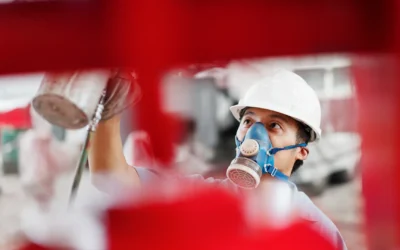As students and campers prepare for the new season, one crucial step often overlooked is the importance of school and camp physicals. These health assessments are not just a formality but a critical component in ensuring the well-being and safety of young individuals. Let’s delve into why these physicals are essential and how they contribute to a healthier, more secure environment for all.
Understanding School and Camp Physicals
School and camp physicals are comprehensive health examinations conducted to evaluate a student’s or camper’s overall health and fitness. These physicals typically include a review of medical history, a physical examination, and sometimes additional screenings or tests. The primary goal is to identify any potential health issues that could impact the individual’s participation in school activities or camp programs.
The Importance of Regular Health Assessments
1. Early Detection of Health Issues
One of the most significant benefits of regular physicals is the early detection of health problems. Conditions such as asthma, vision or hearing impairments, and developmental issues can be identified before they become more serious. Early intervention can lead to better outcomes and ensure that students or campers receive the necessary support and accommodations.
2. Ensuring Safety in Physical Activities
For students involved in sports or campers participating in outdoor activities, physicals are crucial for safety. These assessments help determine if an individual is physically fit to engage in rigorous activities, reducing the risk of injuries or exacerbating existing conditions. Coaches, teachers, and camp counselors can then make informed decisions about participation and provide appropriate guidance.
3. Promoting Overall Well-being
Beyond identifying health issues, physicals contribute to overall well-being. They provide an opportunity for healthcare providers to offer advice on nutrition, exercise, and lifestyle choices. This holistic approach ensures that students and campers are not only physically healthy but also emotionally and mentally prepared to face the challenges of their environment.
4. Compliance with Regulations
Many schools and camps require physicals as part of their enrollment process. These requirements are often mandated by state or federal regulations to ensure that all participants meet certain health standards. Compliance with these regulations helps maintain a safe and healthy environment for everyone involved.
What to Expect During a Physical
A typical school or camp physical includes several key components:
- Medical History Review: A discussion of the individual’s health history, including any past illnesses, injuries, or ongoing medical conditions.
- Physical Examination: A thorough check of vital signs, height, weight, vision, hearing, and overall physical health.
- Additional Screenings: Depending on the requirements, this may include tests for tuberculosis, lead exposure, or other conditions relevant to the individual’s age and environment.
- Immunization Updates: Ensuring that all necessary vaccinations are up-to-date to protect against preventable diseases.
Conclusion
School and camp physicals are more than just a checkbox on a registration form; they are a vital step in ensuring the health and safety of students and campers. By identifying potential health issues early, promoting safety in physical activities, and offering comprehensive health advice, these assessments contribute to a healthier, more secure environment for all. As we embark on a new season, let’s prioritize these physicals and ensure that every student and camper has the opportunity to thrive in a supportive and safe setting.
Don’t miss out on this essential step—secure your peace of mind today by calling East Coast DOT Physicals at 401.519.5368. Our expert team is ready to provide the thorough and efficient physicals you need to keep your child safe and healthy. Dial 401.519.5368 NOW and ensure a worry-free season ahead!



0 Comments